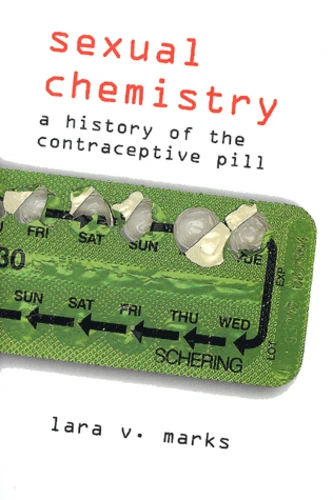Sexual Chemistry. A History Of The Contraceptive Pill
Par :Formats :
- Paiement en ligne :
- Livraison à domicile ou en point Mondial Relay entre le 5 août et le 12 aoûtCet article sera commandé chez un fournisseur et sera expédié 6 à 12 jours après la date de votre commande.
- Retrait Click and Collect en magasin gratuit
- Livraison à domicile ou en point Mondial Relay entre le 5 août et le 12 août
- Nombre de pages372
- PrésentationBroché
- Poids0.835 kg
- Dimensions16,5 cm × 24,0 cm × 3,5 cm
- ISBN0-300-08943-0
- EAN9780300089431
- Date de parution21/06/2001
- ÉditeurYale University Press
Résumé
Heralded as the catalyst of the sexual revolution and the solution to global overpopulation, the contraceptive pill was one of the twentieth century's most radical inventions. It has not only transformed the lives of millions of women but has also extended the limits of drug monitoring and regulation across the world. This deeplyresearched new history shows how the development and use of the oral contraceptive have raised crucial questions about the relationship between science, medicine, technology and society.
Lara Marks traces the scientific origins of the pill to Europe and Mexico in the early years of the twentieth century, challenging previous accounts that identified it as a North American discovery. She investigates why the pill took so long to be developed and explains why it did not prove to be the social panacea envisioned by its inventors. Unacceptable to the Catholic Church, rejected by countries such as India and Japan, too expensive for women in poor countries, the drug has in recent years been linked to cardiovascular problems. Highlighting the positive impact of the pill, Marks shows how it has developed from a tool for the prevention of conception to a vital weapon in the fight against cancer.
Heralded as the catalyst of the sexual revolution and the solution to global overpopulation, the contraceptive pill was one of the twentieth century's most radical inventions. It has not only transformed the lives of millions of women but has also extended the limits of drug monitoring and regulation across the world. This deeplyresearched new history shows how the development and use of the oral contraceptive have raised crucial questions about the relationship between science, medicine, technology and society.
Lara Marks traces the scientific origins of the pill to Europe and Mexico in the early years of the twentieth century, challenging previous accounts that identified it as a North American discovery. She investigates why the pill took so long to be developed and explains why it did not prove to be the social panacea envisioned by its inventors. Unacceptable to the Catholic Church, rejected by countries such as India and Japan, too expensive for women in poor countries, the drug has in recent years been linked to cardiovascular problems. Highlighting the positive impact of the pill, Marks shows how it has developed from a tool for the prevention of conception to a vital weapon in the fight against cancer.

